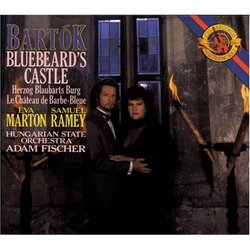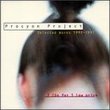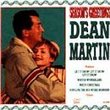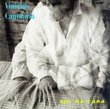| All Artists: Eva Marton, Samuel Ramey, Andras Virag, Hungarian State Orchestra Title: B�la Bart�k: Bluebeard's Castle Members Wishing: 0 Total Copies: 0 Label: Sony Release Date: 10/25/1990 Genre: Classical Style: Opera & Classical Vocal Number of Discs: 1 SwapaCD Credits: 1 UPCs: 074644452327, 5099704452326 |
Search - Eva Marton, Samuel Ramey, Andras Virag :: B�la Bart�k: Bluebeard's Castle
 | Eva Marton, Samuel Ramey, Andras Virag B�la Bart�k: Bluebeard's Castle Genre: Classical
|
Larger Image |
CD DetailsSimilar CDsSimilarly Requested CDs
|
CD ReviewsBartoks' Masterpiece With Samuel Ramey and Eva Marton Ralph Moore | 02/01/2005 (5 out of 5 stars) "First of all, this album is the most dramatic version of Bartok's opera, whose powerful bass/baritone and soprano leads are the real force of the opera. The drama and dynamic force of the original opera is heightened and the music swells with intensity. The world-renowned bass Samuel Ramey makes a terrific and frightening, diabolical Bluebeard. The equally successful diva Eva Marton makes a dramatic and tormented Wife. The forces of Ramey and Marton are the attraction towards this recording. It is indeed very thrilling to hear them portray the evil Bluebeard and his victim. I think this is a great album but if you want to know a little truth, a lesser known truth at that - Bela Bartok himself would not approve of this. Why ? Because he would have favored authentic, native Hungarians in the two roles and because musically, it must be more toned-down in the intensity and more eerie, slow, haunting and dream-like. Bartok wrote this opera at a time when surrealism and Freudian, psychological nightmarish works were being portrayed in the arts...i.e. The Scream by Munch. This movement towards the nightmarish and surreal reflected the modern period of World War I. For a more true concept of the work get the recording with Antal Dorati conducting. That one features native Hungarians in the duo cast and Dorati himself was trained to be a conductor in Bartok's music by Bartok himself!!! But this album is very dramatic and attractive. I own this one along with the Antal Dorati version. Samuel Ramey is absolutely frightening as Bluebeard!! The Hungarian voice which he uses is intense, dark and sinister but royal, in the vein of Bela Lugosi. Bluebeard is a wealthy ex-pirate who has become a wealthy lord of a castle. He has married several times but all his wives have been brutally murdered. His current victim is unaware of his dark past but when she starts snooping into forbidden chambers, she becomes his latest prey. The diabolical role becomes supernatural and symbolic in many ways. He is a symbol for evil, he is a dark man, a Devil, and the haunting Gothic imagery- a sea of blood, dead wives buried under the castle a la Edgar Allan Poe style as well as the labyrinth in the garden are all examples of the eerie and chilling effects of a Gothic Opera. Ramey has made a name for himself in portraying nearly al the villains of Opera in the bass/baritone category - the villains in Offenbach's Tales Of Hoffman, the Devil in Gounod's Faust, Scarpia in Puccini's Tosca, Iago in Verdi's Macbeth, Boito's own Mefistofele among others. Opposite his devilish Bluebeard is the dramatic victim that is Eva Marton. Though her voice is quite big, Wagnerian even, she uses subtlety and lyricism to evoke innocence and helplessness. I would have preferred that a lighter soprano played the hapless Wife of Bluebeard because artistically it seems more appropirate - a dark and towering Devil next to an angelic and vulnerable heroine. But Eva Marton makes a great performance that can't be ignored. She's up to paar with the charismatic bass singing opposite her. Think of her performance as a diva caught in a dire situation, enough reason to overact dramatically. This is a great album and a fine dramatic take on Bluebeard's Gothic and bloodcurdling opera." Bartok's Gothic Opera Rudy Avila | Lennox, Ca United States | 10/22/2005 (5 out of 5 stars) "While I cannot repeat what the other review states, I can only say that he seems to be wrong about Samuel Ramey being Hungarian. Soprano Eva Marton is Hungarian and is doing a marvelous job as the newest victim of the devilish Bluebeard. The story is dark and symbolic. Bluebeard (not Bluebeard the Pirate) is a wealthy property owner who lives in a foreboding castle. He has just married wife No. 3. He warns her not to wander to a certain part of the castle. Naturally, curiosity gets the best of her and she searches the forbidden area despite his orders. What she finds there reveals a darker side to her husband. Eva Marton has a huge voice that fully captures every nunance of this character. Ramey has a terrific voice with all the right earthy and devilish tone for the part. Adam Fischer conducts Hungarian forces in Bartok's great work of Gothic and surreal drama." Darkness...Darkness... Eric D. Anderson | South Bend, IN United States | 09/30/2003 (5 out of 5 stars) "I avoided this opera for a long time, because I've never been a big fan of Bartok's later works. But I finally succombed, in part due to it's fascinating story. "Bluebeard" is a one-of-a-kind masterpiece. Though it owes much musically to Richard Strauss, it's musical world is more radical. Still a romantic work, it doesn't swoon and surge like it's romantic contemporaries. Rather, it underlines the sinister turns of the story with unpretentious, unsettling brilliance. The strangeness (to English speaking ears) of the Hungarian text also adds to the underlying sense of horror."Bluebeard" is a symbolist work in the truest sense of the word. In it we see characters who interact with one another, yet what we see can't make literal sense. If Bluebeard's former wives have watered his lands with their blood, then how do they emerge from the seventh gate? Yet we accept it, because we sense that we're watching a parable of human nature--of maleness, femaleness, the meaning of marriage, of good intentions, and of psychological damage.The story of Bluebeard and his wives has been a popular subject for playwrights and operatic composers, including a comedy by Offenbach and another widely admired symbolist opera by Dukas with a libretto by Maurice Maeterlinck. But Bartok's telling must certainly be the darkest."
|

 Track Listings (12) - Disc #1
Track Listings (12) - Disc #1








